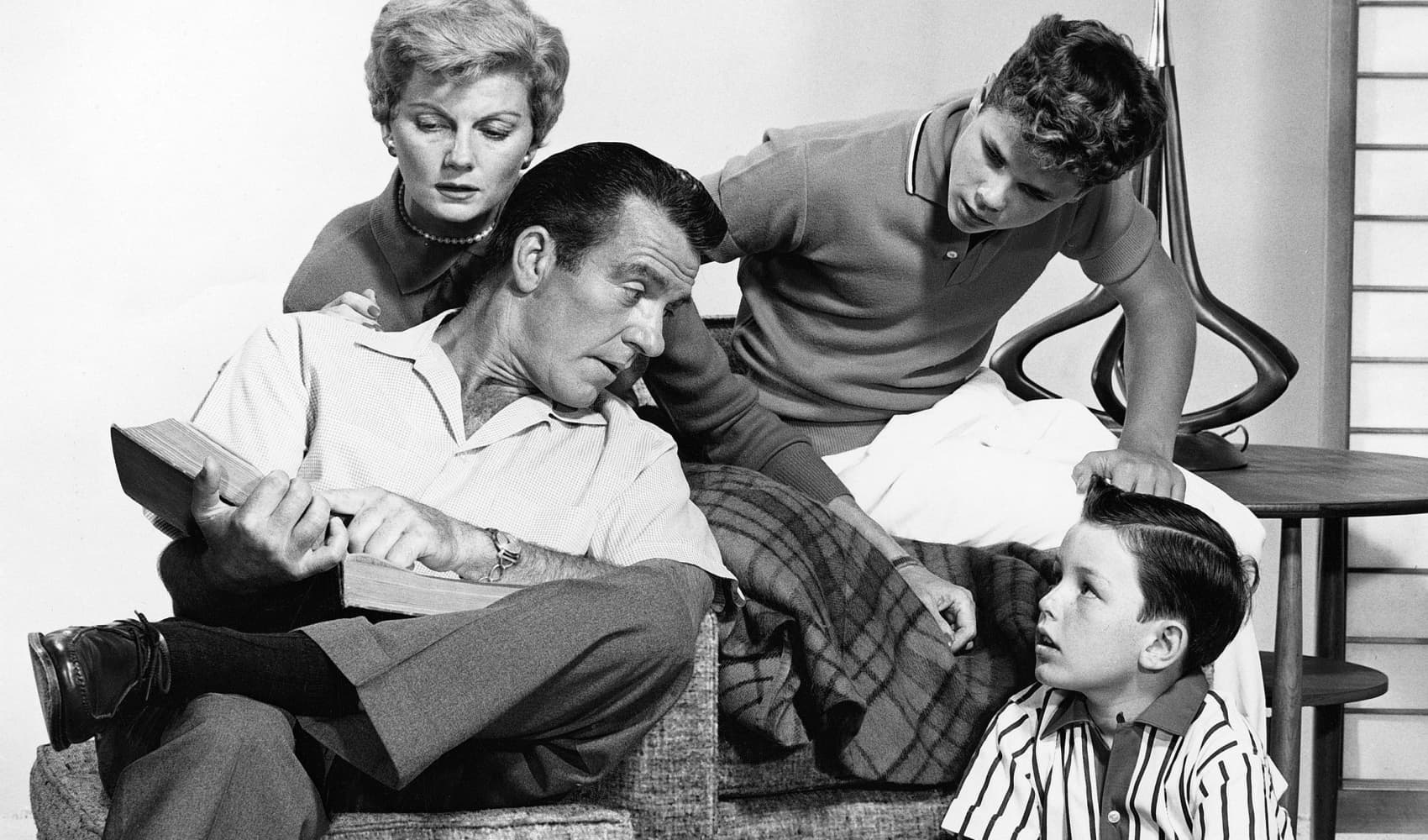
We can't turn back the clock as we age, but we can tailor our workouts to improve our quality of life and ability to do everyday activities.
The secret? Strength training.
Strength training keeps our muscles and joints healthy and limber, which becomes increasingly important as we get older because we lose muscle mass and develop stiffer joints as we age.
As a fitness trainer, I do five key strength-training exercises every day to look and feel younger. If you don't want to do them daily, I recommend doing these moves at least twice a week:
Get New England news, weather forecasts and entertainment stories to your inbox. Sign up for NECN newsletters.
1. Glute Bridge
What it targets: Glutes, core and hamstrings
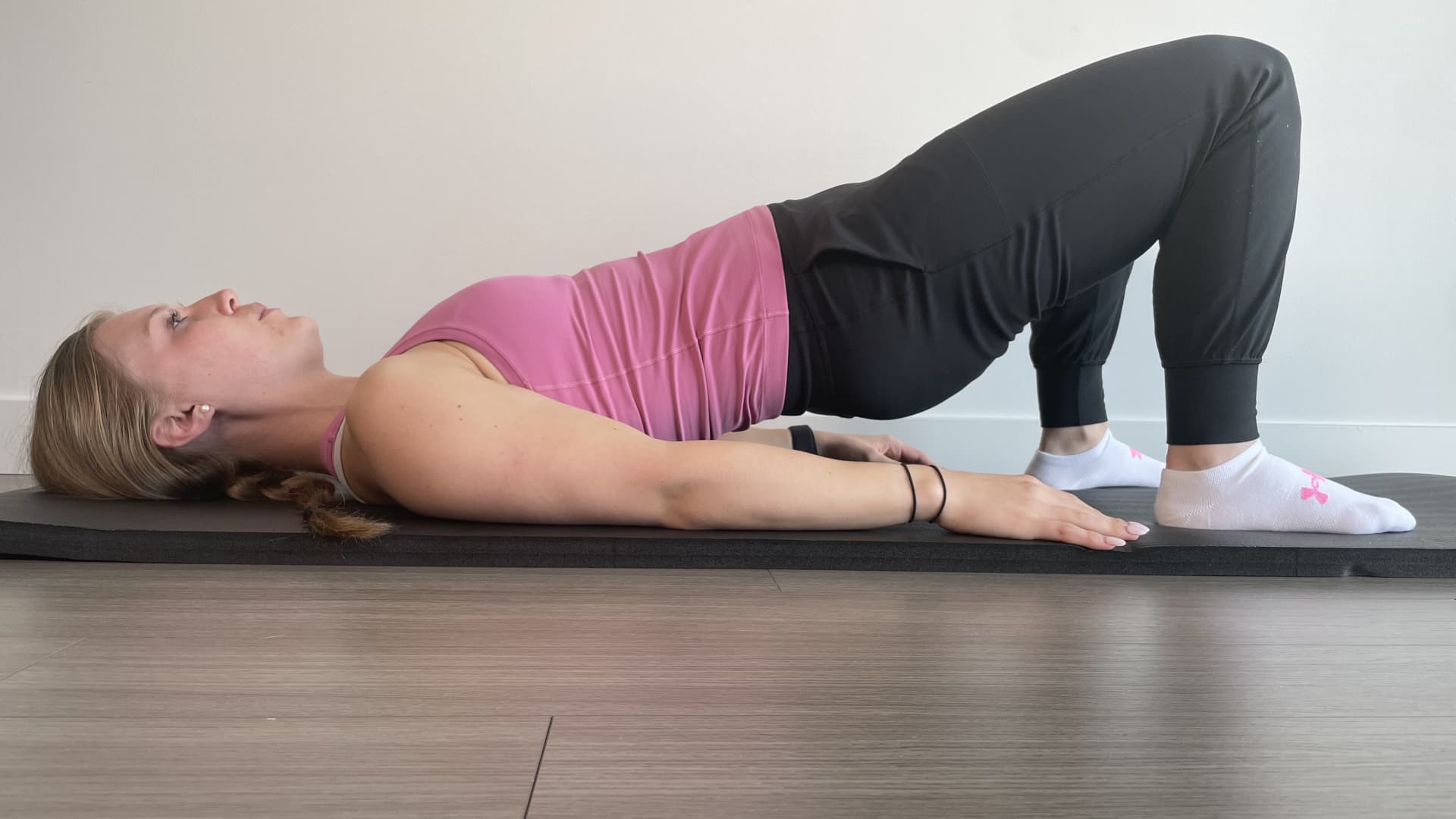
Targeting these major muscle groups with a Glute Bridge can help reduce lower back pain and improve mobility.
How to do a Glute Bridge:
- Lay on your back. Plant your feet flat on the floor with your knees bent, arms straight down by your sides, and hands flat on the floor. Your heels should almost touch your fingertips.
- Activate your core and push your lower back into the floor to align your pelvis.
- Push your heels into the floor as you lift your hips up and off the ground.
- Slowly lower back down to the ground one vertebra at a time, starting at the top of your spine and working your way down.
- Do three sets of 10 reps.
2. Quadruped Reverse Fly
What it targets: Upper back, shoulders and core
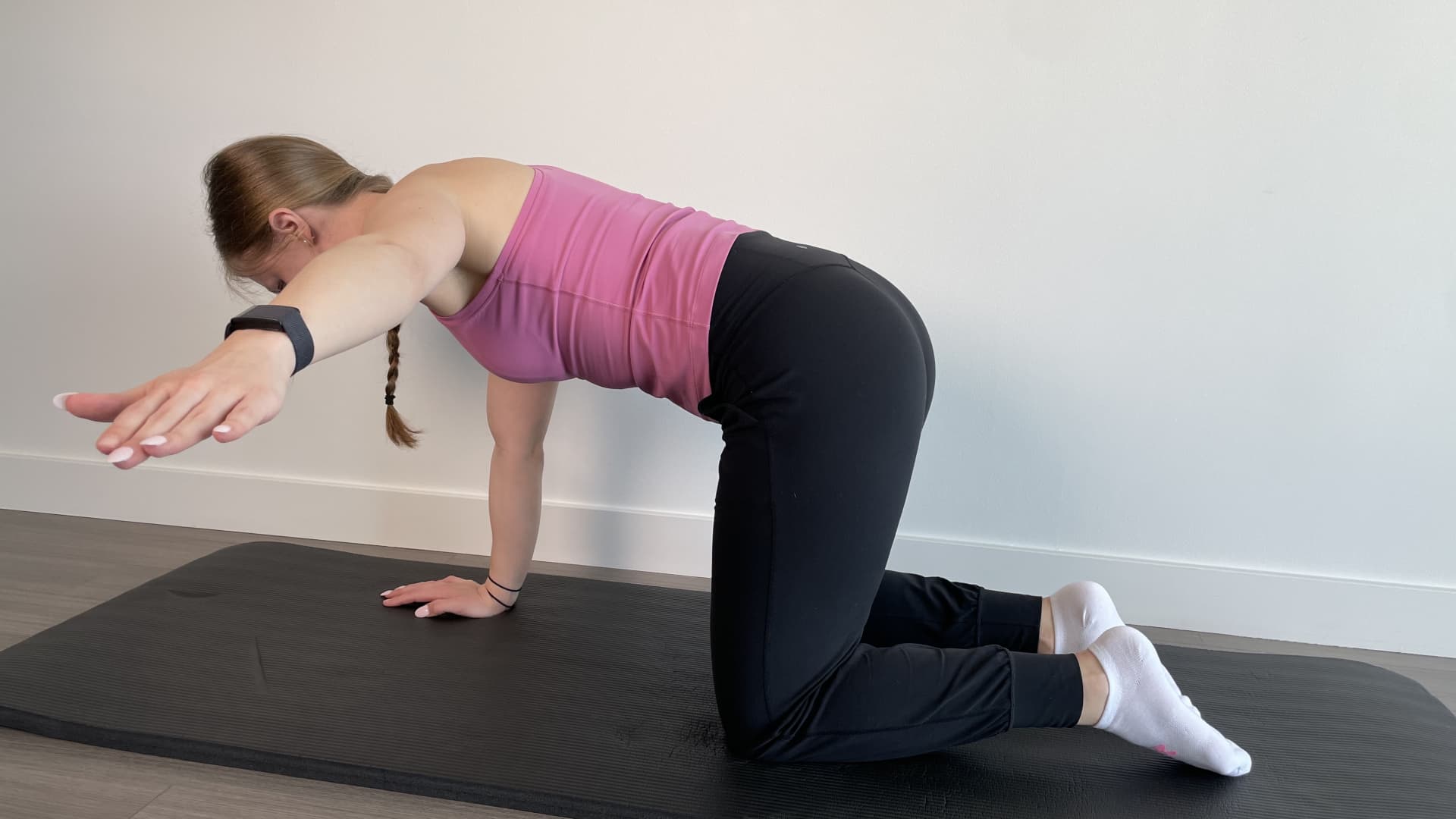
Take notice if your shoulders are rounded forward when you're at your computer, on your phone, reading a book or driving. If they are, you're not alone; this is a problem for many people, and it can lead to neck pain.
Money Report
Strengthening your upper back with a move like the Quadruped Reverse Fly may help reduce neck pain or prevent it from occurring. It can also help you achieve better posture over time.
How to do a Quadruped Reverse Fly:
- Get into a quadruped position (on your hands and knees). Your hands should be directly under your shoulders, and your knees directly beneath your hips.
- Pull your belly button in toward your spine to ensure you have a neutral spine.
- Keep your right arm straight as you raise it out to the side until it becomes parallel to the ground.
- Slowly lower your arm back to the ground. Repeat on the other side.
- For added intensity, do this move with one- to five-pound dumbbells.
- Do three sets of eight to 10 reps per side.
3. Superman
What it targets: Glutes, back of shoulders, arms, core, lower back and legs
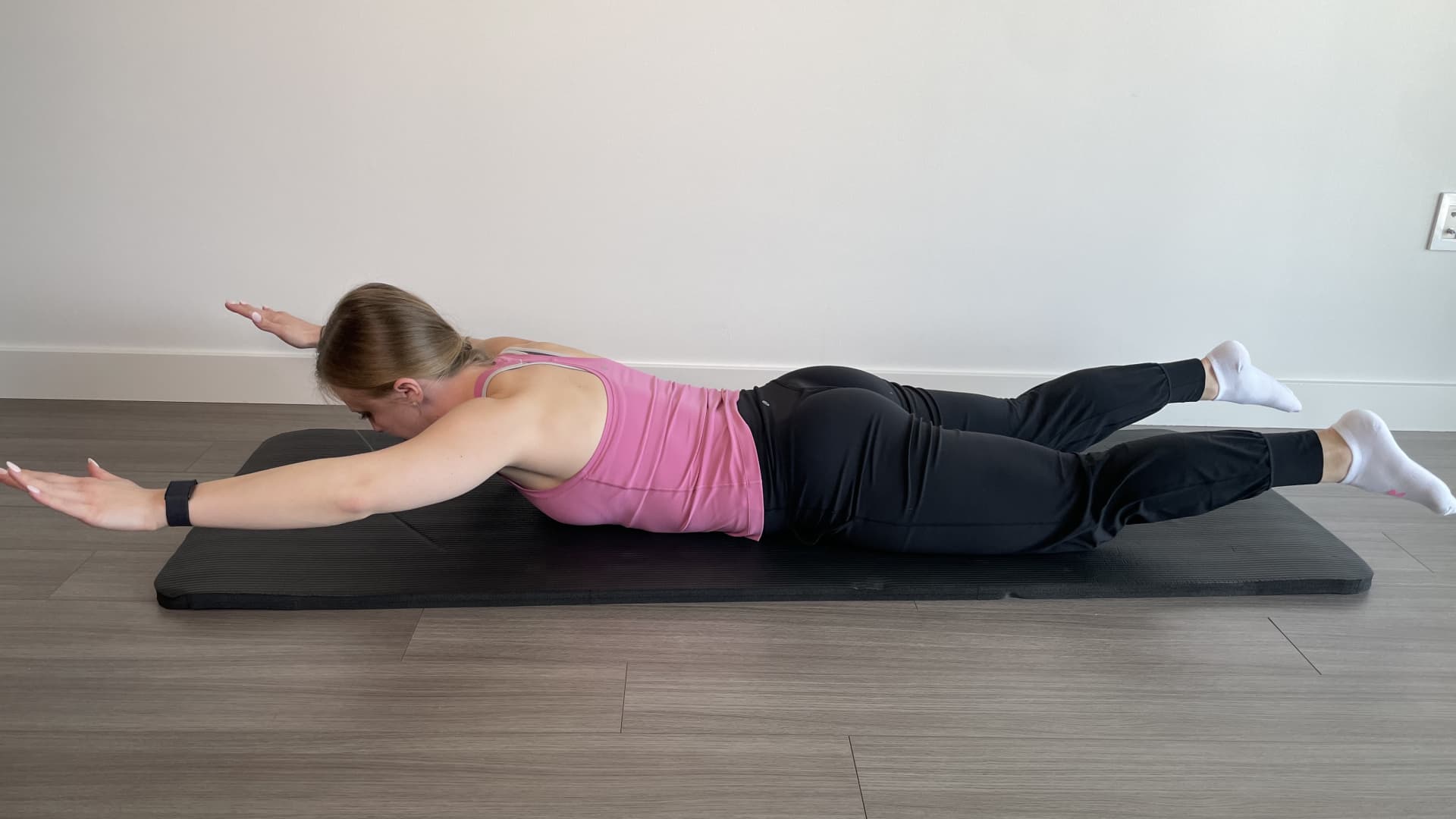
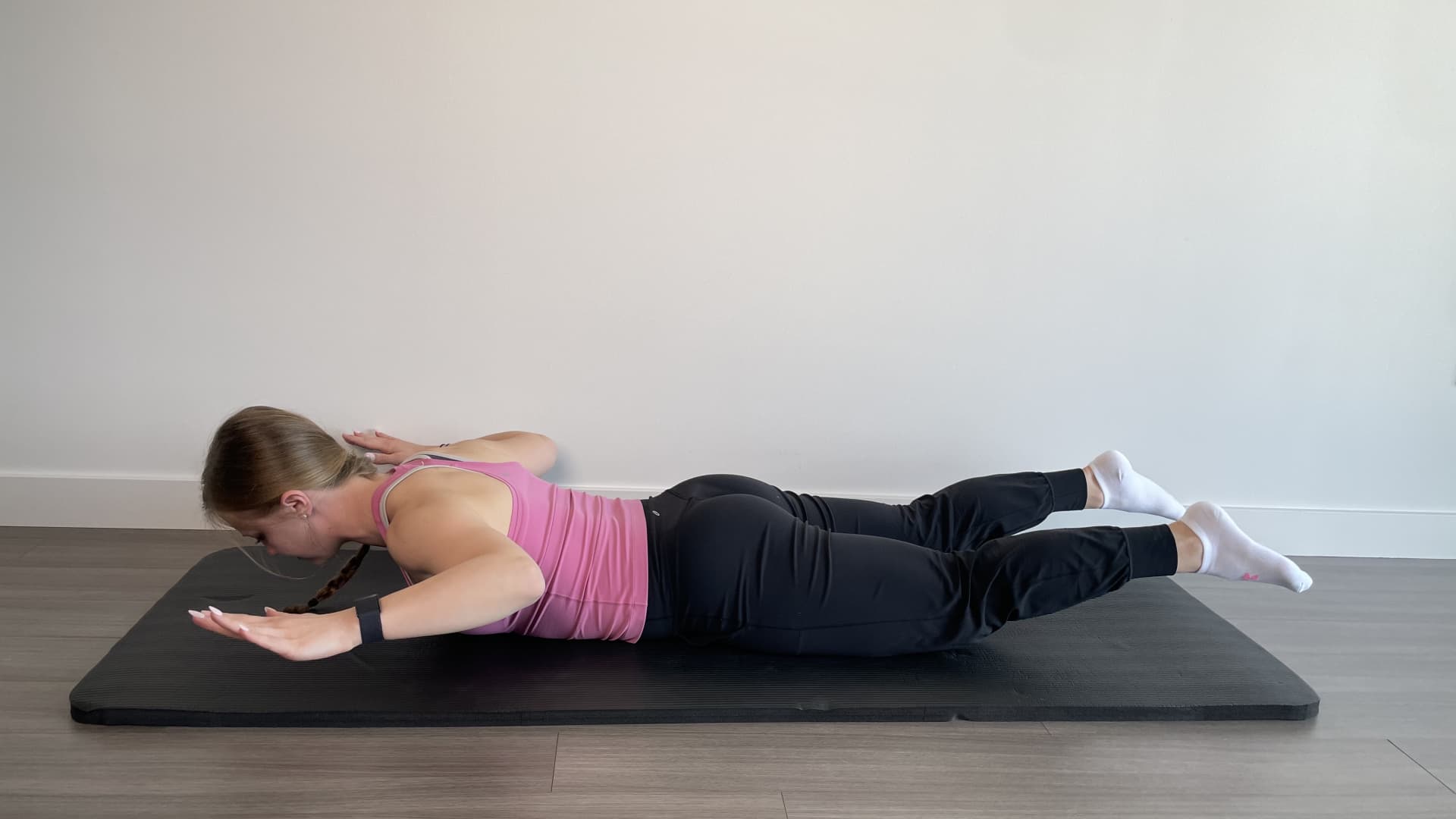
The Superman is a very simple bodyweight move that combines the benefits of both the Glute Bridge and the Quadruped Reverse Fly. This exercise strengthens your entire posterior chain, which is made up of every muscle in the back part of the body.
Working these muscles has been shown to reduce chronic pain, particularly in the lower back.
How to do a Superman:
- Lay on your stomach with your arms up in a "Y" shape. To modify, create a "W" with your arms instead by bending your elbows.
- Simultaneously lift your arms and thighs a few inches off the ground.
- Hold for three seconds, lower and repeat.
- Do three sets of 10 reps.
4. Dead Bug
What it targets: Core
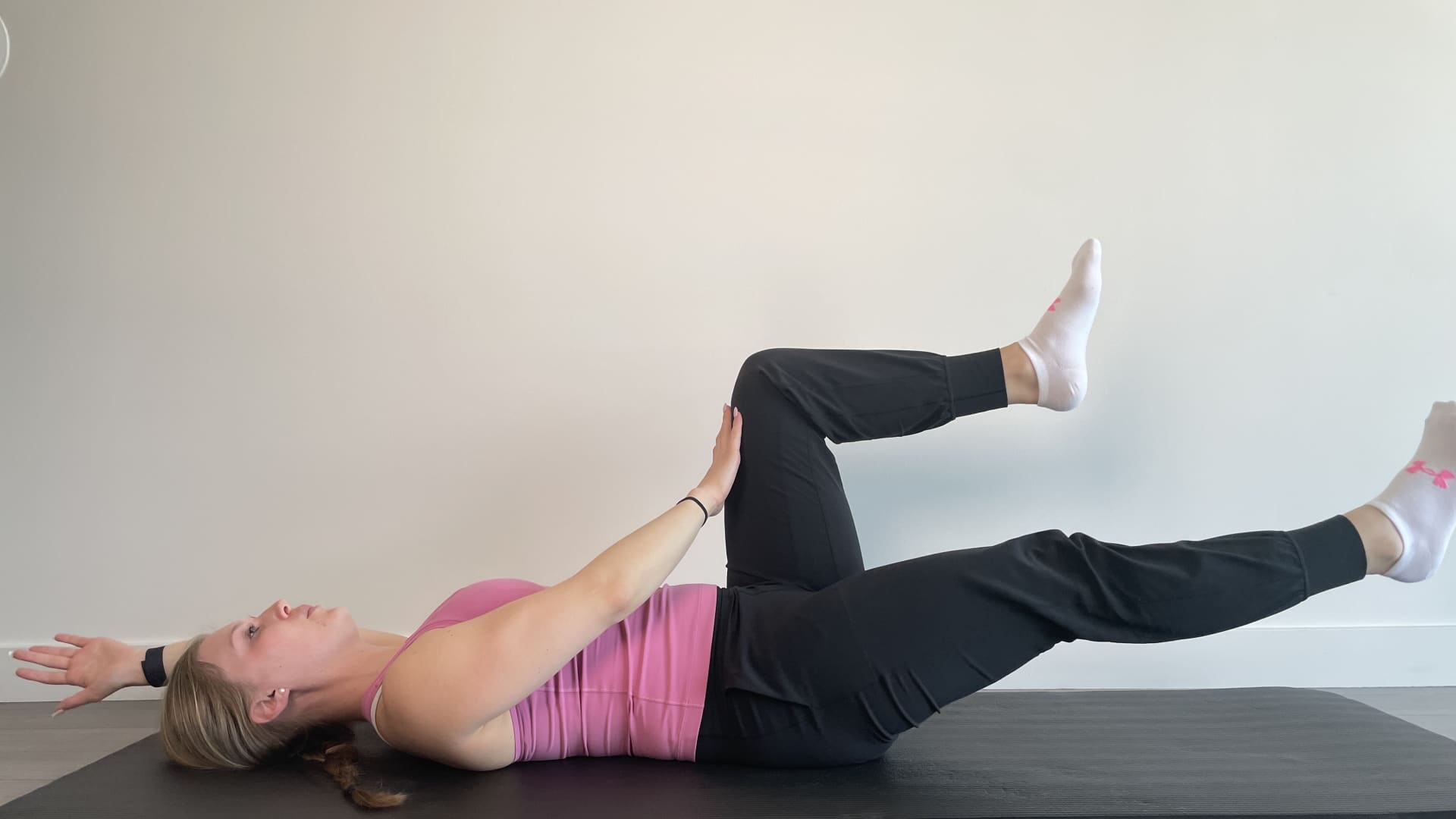
A strong core can help improve stability, reduce pain and improve overall function. I love how much this exercise isolates your core while improving cognitive function with the coordination required to accomplish this move.
How to do a Dead Bug:
- Lay on your back with your arms lifted up toward the ceiling.
- Keep your hips, knees and ankles all bent at a 90 degree angle. Press your lower back into the floor.
- Place your right hand on your left knee. Simultaneously raise your left arm overhead and straighten your right leg.
- Return to the starting position.
- Switch sides by placing your left hand on your right knee and simultaneously raising your right arm overhead and straightening your left leg.
- Do three sets of eight to 10 reps per side.
5. The Plank
What it targets: Core, arms, shoulders, quads, abs and glutes
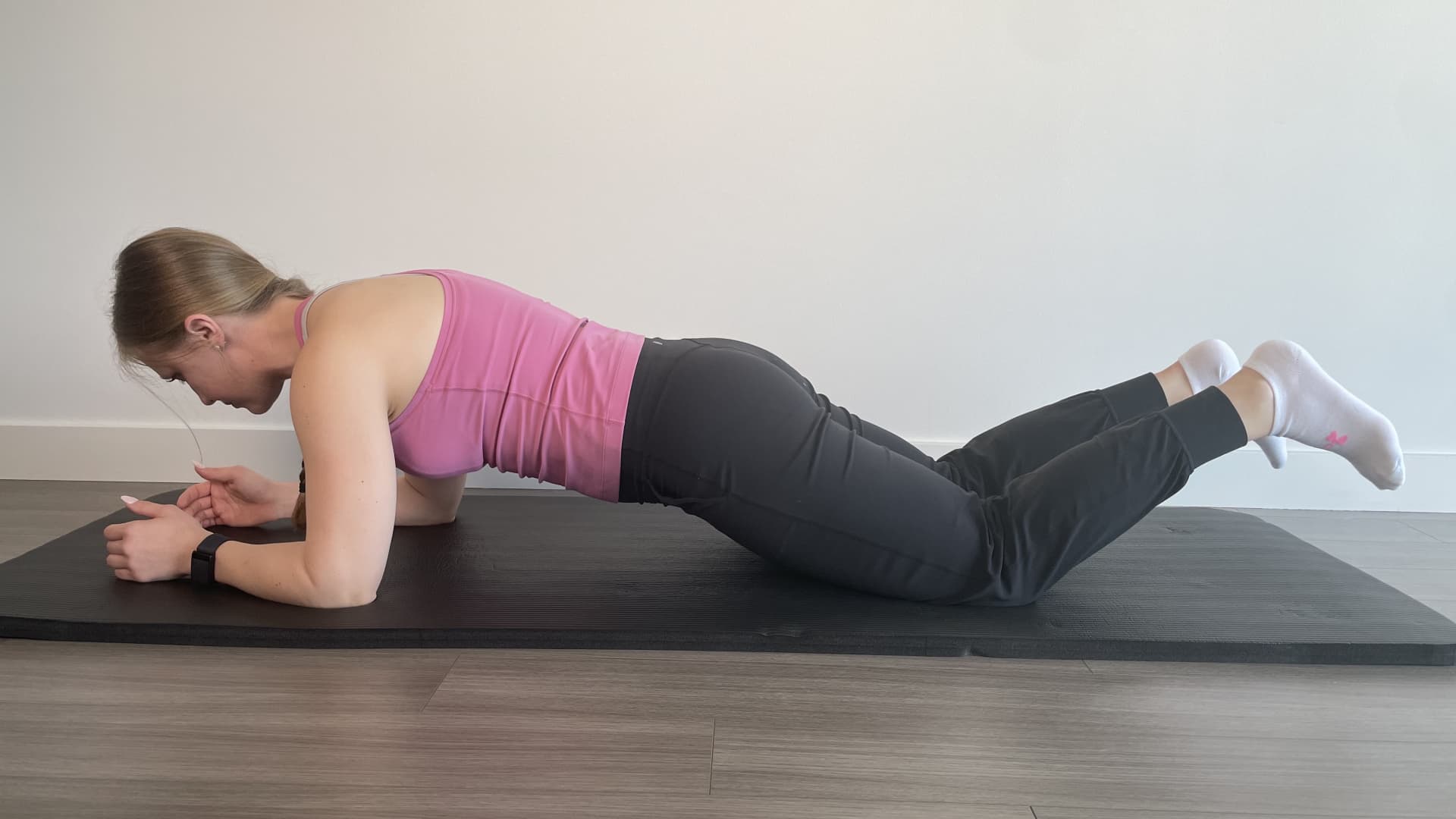
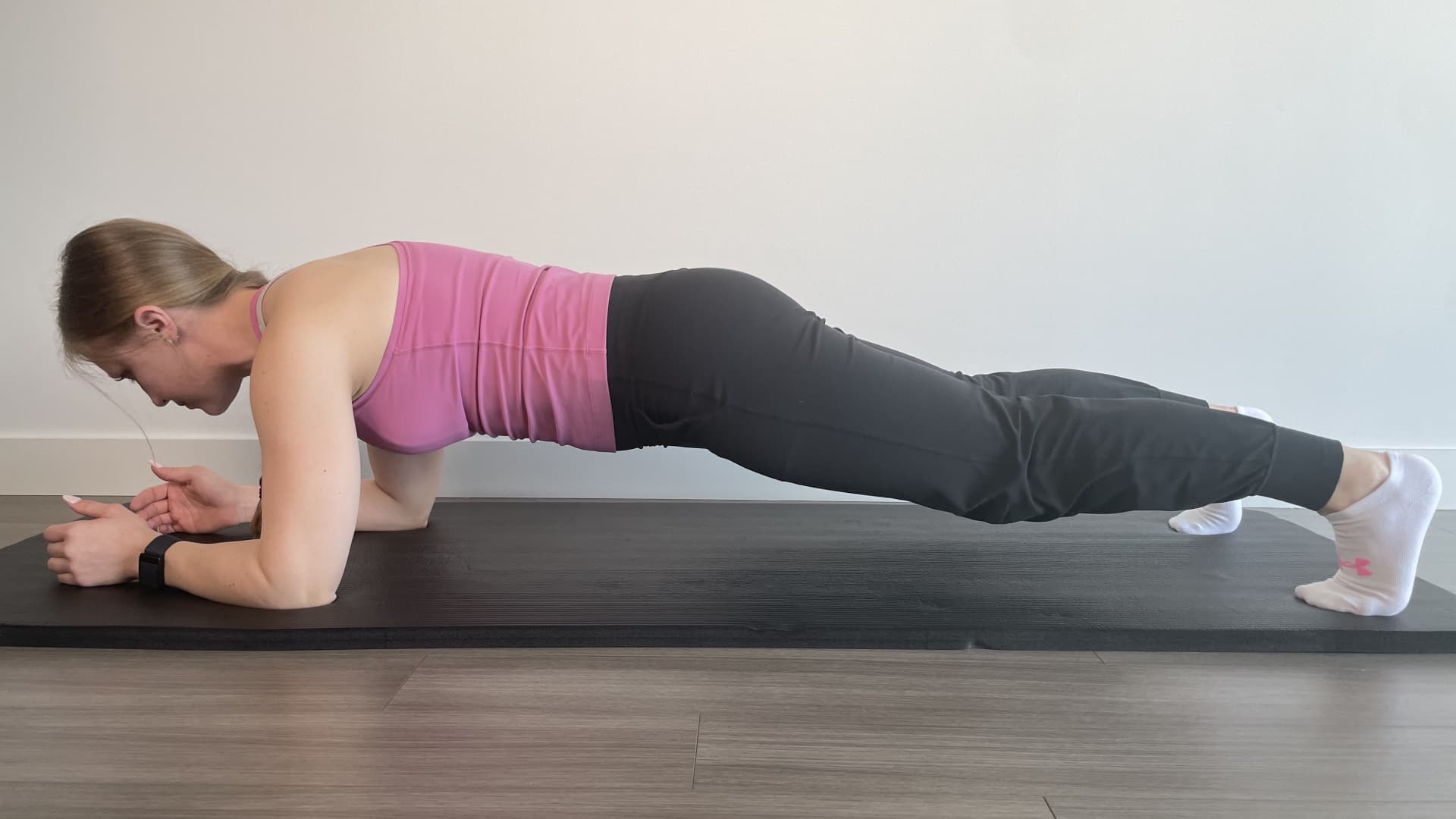
I love the Plank because it really is a total body exercise. It strengthens your arms and shoulders while they hold you up, your quads and glutes while you keep your legs straight, and your abs while you keep your back in a neutral position.
How to do a Plank:
- With your body facing the ground, hold your body up while on your toes (or knees to modify) and your forearms.
- Make sure your elbows are below your shoulders and act like you're pushing your body away from the floor to activate your shoulders.
- Keep your body in a straight line from your head to your toes (or knees).
- Do three sets of 30-second planks. Slowly increase the holding time as you get stronger.
Stephanie Mellinger is a certified personal trainer, corrective exercise specialist and nutritionist. She is also the founder of the fitness company Omnia Fit and a writer for HealthDay. Follow her on Instagram @omnia_fit_.
Don't miss:
- A longevity expert shares the diet, exercise and sleep rules he lives by for a longer, stronger life: These are ‘non-negotiable’
- Adding this one simple food to your diet may help you live to 100, according to the world’s longest-living people
- A dietitian says this is the 'power nutrient' she eats for a longer, healthier life—but 95% of Americans lack in their diet
Sign up now: Get smarter about your money and career with our weekly newsletter



